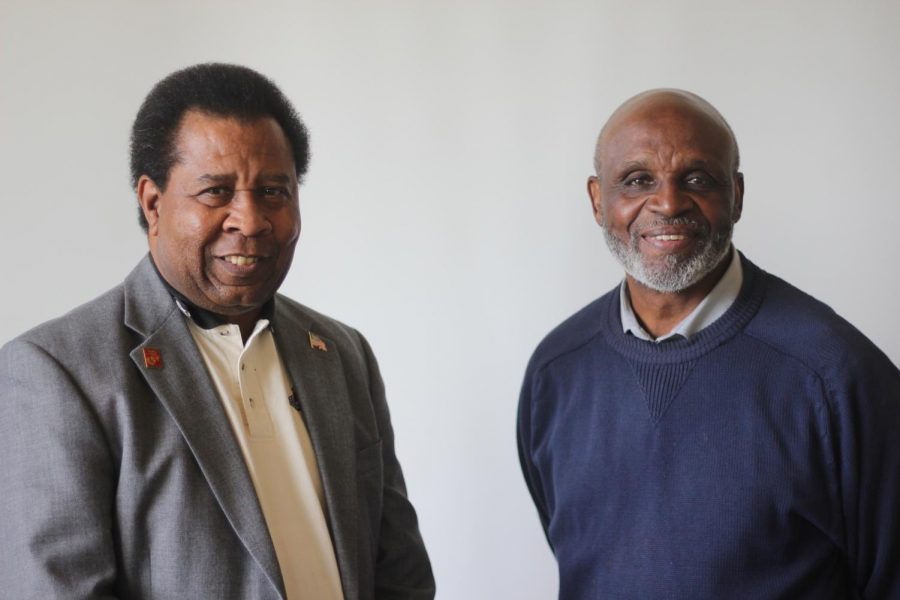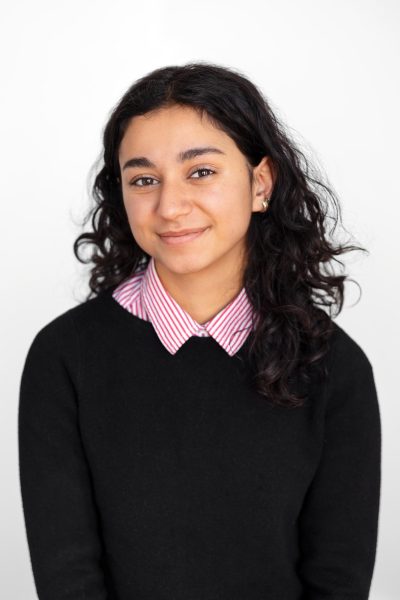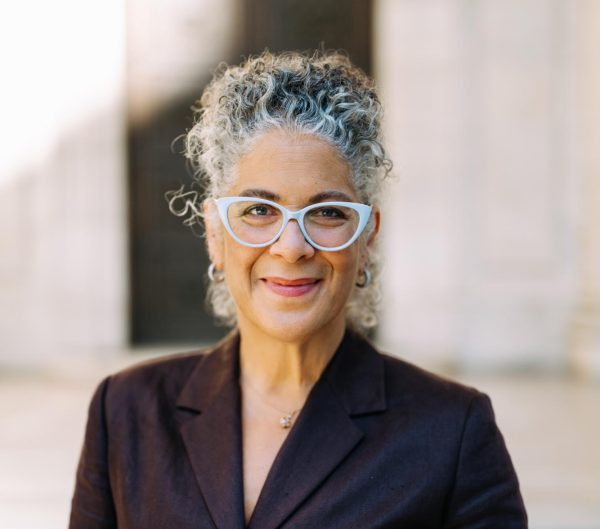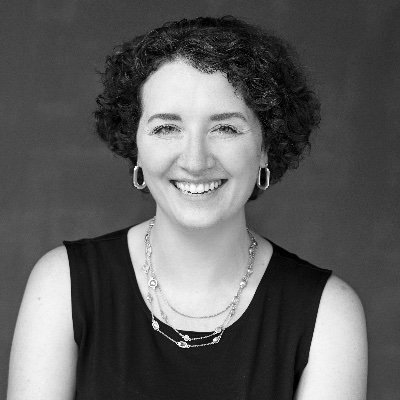OTC: Anderson Flen and Major Joe Womack, Africatown, Alabama
Major Joe Womack (left) and Anderson Flen (right).
Anderson Flen and retired Marine Major Joe Womack are both natives of Africatown, Alabama — a community with a rich and unique history dating back to the 1860 landing of the Clotilda, the last ship to illegally bring enslaved African people to the United States. Since then, many historians, anthropologists, and journalists have chronicled Africatown’s story, including Zora Neale Hurston in the recently released Barracoon. Earlier this week, Flen and Womack visited Oberlin to present alongside a group of students who have participated in Oberlin’s partnership with Africatown, which began in 2014 under the leadership of Associate Professor of Environmental Studies Janet Fiskio. The presentation, titled “Environmental Justice and Community Knowledge in Africatown, Alabama” covered topics such as the disproportionate threat of industrial pollution that Africatown residents face, the history of Mobile County Training School, and the oral history work that Oberlin has done to help preserve the community’s history.
This interview has been edited for length and clarity.
For readers who aren’t familiar with the history of Africatown, could you give some background information?
Joe Womack: The big thing about Africatown is the fact that it was the place where the last recorded shipment of slaves came into this country. Those slaves transferred from Africa to America, [via] the Transatlantic Slave Trade, and it happened 50 years after the slave trade itself had been abolished and before the Civil War. So, it was an illegal pirated shipment — that was probably going on elsewhere too, but this one just happened to be caught by the feds, and so it was recorded. The people that caused it to happen were brought to trial, but they were found innocent. It was right before the Civil War so people concentrated more on the war than on that trial itself.
There were 110 slaves aboard that ship and after the Civil War, they wanted to go back home, but they couldn’t go. They had no money and no one would take them, so they decided to make that area there ‘Africa in America.’ … They actually bought the land from the people that had brought them over here to America. …They formed and incorporated the area they called Africatown — about five square miles, just off of Mobile. And it was incorporated for a long time until they finally voted to become part of Mobile over 100-something years later.
So they bought the land — they had their own property and they were very proud of that, and they maintained it. They actually helped form a school, and that school still exists today. They formed it in the basement of a church around 1860. It got up to where it had about 1,200 students. … I’ll let [Anderson] talk a little bit about the school, but that’s two things that they’re very proud of: They formed their own community, incorporated with their own government, and then they formed a school to educate the children.
Anderson Flen: The school had a really interesting history because the community, the church, and the school were all tied together. For a long time, every student that went to the school on Monday morning had to bring to school a signed card from the superintendent of the Sunday schools, that they were in good standing at the Sunday school in order to be in good standing at school. If that was not done, they were sent home and the parents had to come back that same day to bring the kids back. So there was a strong relationship between the school and the community and the church, and the essence of that relationship still exists. Even though the tradition does not exist, the essence of the relationship still exists with the church, the school, and the community.
How has that relationship and the legacy of the school impacted the community as it stands today?
AF: Well, I think if that relationship had not existed, the school and the community would have been totally destroyed by now. That relationship and [that] structure created a synergy that has held people together — both individuals that did not go to the school and their children have a certain amount of commitment to make sure that school remains, it stays there, and it brings the community together. The one entity that brings everybody together in that community and around that community is the school.
Major Joe, during your talk today you mentioned the environmental issues that you’ve been fighting with your organization Clean, Healthy, Educated, Safe, and Sustainable, or CHESS. Can you elaborate on that and the work you’ve been doing?
JW: Well fortunately, the community is located near water and that’s where it started; it’s surrounded on three sides by water. There was a saw mill that the plantation owner owned and that’s where a lot of guys — former slaves — worked. But as time went on and the country began to industrialize, two large paper companies moved in — International Paper [Company] and Scott’s Paper [Company] — and some other small related industries moved in. And that sort of pushed the residents away from the water. Of course, back in those days, pollution control laws were few, if any, and the few they had weren’t enforced. And so there was a lot of pollution going on, and International and Scott both had a big expansion around the ‘40s.
And that’s when the community grew, because you had people coming in from four or five hours away from the north, east, and west to find work. So the community swelled up to about 15,000 residents, because most of them worked in and around the mills. The paper mills had the pollution problem, the odor problems that had existed in the community for years and years and years. To my way of thinking, if you were born after 1945, those people seem to be more affected because at that time their immune system was just getting started. So if you were born before ’45 your immune system probably was already, to a degree, established and couldn’t be affected much.
Even though [International Paper and Scott’s Paper] left, the area they were physically located in is still zoned for heavy industry. And so the people that own that land made money off leasing the land, and so it seems like the only businesses that they want to try to find, are what I consider to be dirty and toxic type industries — they’ll pay the most money to get by that water.
That’s what we’re fighting. Over the years and after International Paper and Scott’s left, a waste disposal unit tried to come over there and they were going to be dumping and treating waste from around the world. So the community fought against that. And then five, six, seven years ago, an oil company tried to come in there and put up these big storage tanks to store oil. A trucking company tried to come in, and warehouse people tried to come in, and a group tried to rezone the area so they could lease old military hardware — auction it off.
All of these things did not coincide with what the community wanted for itself. The community wanted to beautify the area … as very historic and something that needs to be improved, but yet the industry that they were bringing in would just make the area worse and make people not want to move into the area. So we continue to fight that fight. The main thing that we’ve got to do is try to see if we can get some politicians on our side … to see if we could change some laws and get the people to do a better job of policing the existing laws. Like I always say, you know, when you’re in a military situation and sometimes you find the enemy inside your lines — you got to get them out of there. That’s where I’m at to a degree, some of those in business in there, I want to get them out of there. It’s an ongoing struggle and so we just fight for what we believe in.
Can you talk about Oberlin’s relationship with Africatown a little bit?
AF: Joe has an earlier start in the relationship with them. The two ways which we’ve worked with Oberlin are, one, they came down originally in terms of the environmental issues of the community to do testing and to work with the community around environmental issues. And then subsequently we began to do oral interviews with [Mobile County Training School] alumni and with the community to tell the story of the community and why it was so important to be preserved — and to possibly even reinvent the community to a large extent.
I think Oberlin, because of their history and their mission — and the kind of activism that this school has had throughout its history, and because of the quality of its academic legitimacy, for lack of a better word — I think they bring something that will help the academic institutions in Mobile appreciate and be able to start engaging the community in a heftier way in terms of utilizing their academic resources and structuring so it’s a part of their curriculum to make things better. Academics is about making a situation better. It is not about just going through the motions of going in a building and coming out. And that’s what you see a lot in Alabama and in Mobile in particular — there are very few universities, no university in Mobile, that has really engaged the community in terms of changing and using academic strength to make the community a better place. And Oberlin, I think, is going to bring that to the universities down there.
JW: Like Anderson said, Oberlin — and there’s another institution: the Deep South Center for Environmental Justice, out of New Orleans — those two entities which exist outside of Mobile have been very helpful in what we’re trying to do in the community of Africatown. Oberlin has come down and come back and come back and come back, and that’s very important that people see that you keep coming back — that shows your interest. Plus others who are located there and haven’t done anything at all, that sort of shows them up. You know, why are you right here and you don’t do anything, and I’ve got to come all the way from Ohio to do what I can to help this particular community?
We appreciate what Oberlin has done and what they’re continually doing, and we’re both working together to make things better for the community and better for the Oberlin students so that we can both have a win-win situation out of this. We’re looking to become like an extension of [Oberlin] so they can keep kids coming down and rotating on a regular basis. That’s one of our goals and objectives, is to get a house there within the community so when the kids come down, as students come down, they can actually stay within the community, with the people they are actually working with and become a regular part of the community. Then the people can see them, you know, getting up every morning, going to sleep every evening, just like another member of the community does every day and night. That’s important for establishing that relationship. Now Oberlin has already established a good relationship, but this will just take it to another level and that’s what we’re working for.
AF: I think the other thing about Oberlin is that it really takes a holistic approach in terms of how it does things, and I’m very, very pleased at seeing that. It looks for other partners that it can collaborate with that can help bring strength to an entity that it’s trying to work with. If it knows that it can’t do specific things, it seeks out other partners and brings them on board to make sure that those things are being taken care of.
The other thing is that they engage the community and all the ages of the community in terms of youth and seniors, and they really try to make sure that the individuals in the community have ownership of the community. Oberlin makes it very clear up front with you, “We’re here to help, not to take over. We want to make sure that this community is self sustaining, and that any decisions that are made are passed by them, and it’s ultimately their decisions to make.” So that’s why I’m just excited about them being there.










